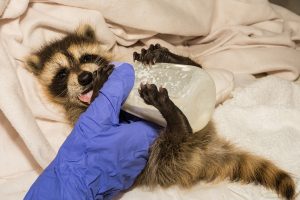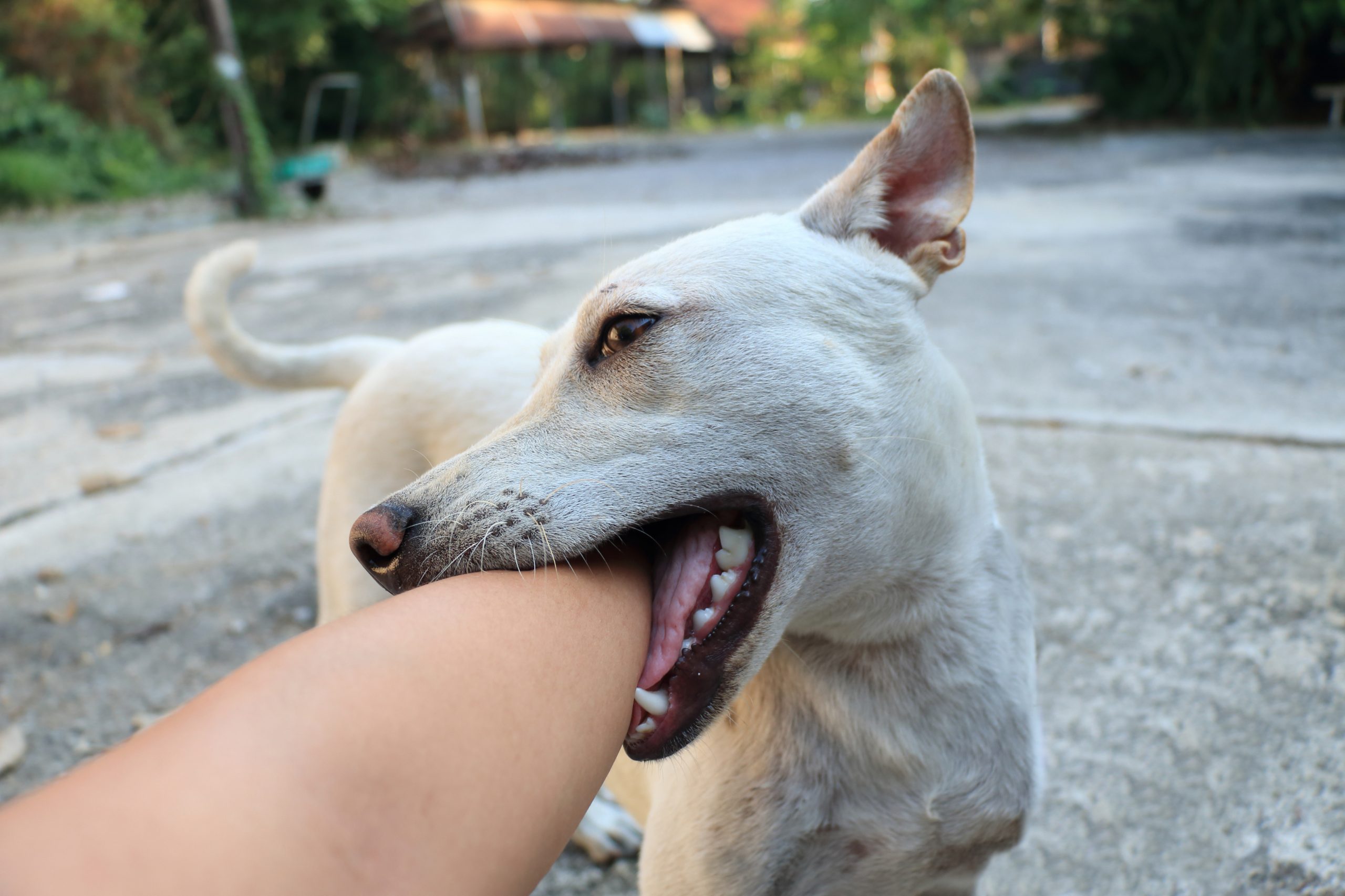Rabies is a deadly disease caused by a virus that attacks the nervous system. It kills almost any mammal or human that gets sick from it. The rabies virus is mainly in the saliva and brain of rabid animals. It can be transmitted through a bite or by getting saliva or brain tissue in a wound or in the eye or mouth.
What You Can Do to Help Control Rabies:
- Have your veterinarian vaccinate your dogs, cats, ferrets, and selected livestock. Keep the vaccinations up-to-date.
- If your pet is attacked or bitten by a wild animal, report it to the local health or animal control authorities. Be sure your vaccinated dog, cat, or ferret receives a booster vaccination.
- Limit the possibility of exposure by keeping your animals on your property. Don’t let pets roam free.
- Do not leave garbage or pet food outside. It may attract wild or stray animals.
- Do not keep wild animals as pets. Enjoy all wild animals from a distance, even if they seem friendly. A rabid animal sometimes acts tame. If you see an animal acting strangely, report it to your local animal control department and do not go near it yourself.
- For more information, contact your local health department.
If You Have Been Bitten:
Don’t panic… but don’t ignore the bite, either. Wash the wound thoroughly with soap and lots of water. Washing thoroughly will greatly lessen the chance of infection. Give first aid as you would for any wound. If possible, capture the animal under a large box or can, or at least identify it before it runs away. Don’t try to pick the animal up. Call an animal control or law enforcement officer to come get it. It’s critically important that you notify your family doctor immediately and explain how you got the bite. Your doctor will want to know if the animal has been captured. If necessary, your doctor will give the anti-rabies treatment recommended by the United States Public Health Service. Your doctor will also treat you for other possible infections that could be caused from the bite. Report the bite to the local health department.
Rabies Resources

- Dog Cat Ferret Exposed Decision Tree
- Livestock Exposed Decision Tree
- Domestic Animal Rabies Exposure Quick Reference Guide
- Commonly Asked Questions About Rabies for Animal Healthcare Providers
- Use of a Modified Preexposure Prophylaxis Vaccination Schedule to Prevent Human Rabies
- Human Exposed to Domestic Animal or Livestock Decision Tree
These documents are meant to provide quick reference for animal healthcare providers in regard to common rabies exposure issues. More detail about rabies and rabies exposures can be found in the Virginia Guidelines for Rabies Prevention and Control. In addition, further information can be obtained from your local health department. A directory of local health departments can be found at the VDH Local Health Districts page.
 These documents are meant to provide quick reference for human healthcare providers in regard to common rabies exposure issues. More detail about rabies and rabies exposures can be found in the Virginia Guidelines for Rabies Prevention and Control. In addition, further information can be obtained from your local health department. A directory of local health departments can be found at the VDH Local Health Districts page.
These documents are meant to provide quick reference for human healthcare providers in regard to common rabies exposure issues. More detail about rabies and rabies exposures can be found in the Virginia Guidelines for Rabies Prevention and Control. In addition, further information can be obtained from your local health department. A directory of local health departments can be found at the VDH Local Health Districts page.
Rabies vaccination clinics may be offered outside of a registered veterinary establishment if the requirements found in § 3.2-6521 of the Code of Virginia are met which includes approval by the appropriate local health department and governing body. More about what veterinarians in Virginia should know about rabies clinics can be found in the guidance document 150-12 “Administration of rabies vaccinations, revised December 16, 2016” available on the Virginia Board of Veterinary Medicine’s Guidance Documents page. While rabies clinics held in a licensed veterinary facility do not require local government approval, veterinarians who offer low cost rabies vaccinations through their hospitals on a routine or periodic basis are encouraged to contact their local health department to share the details of this service. Questions about rabies clinics in your community should be directed to your local health department. A directory of local health departments is available at the VDH Local Health Districts page.
Virginia’s rabies regulations can be found at the Virginia Legislative Information System's page on rabies regulation. These regulations, in part, provide for an exemption to rabies vaccinations for dogs and cats “if a vaccination would likely endanger the animal’s life due to a previously diagnosed disease or other previously documented medical considerations as documented by a licensed veterinarian.” A guidance document has been developed to assist veterinarians with the process of rabies vaccine exemptions which discusses the language of the law associated with exemptions and examples of certain conditions for which an exemption may be appropriate. A standard application form has also been developed for this process. Veterinarians interested in applying for an exemption should discuss the process by which they can apply with their local health departments. Veterinarians are also encouraged to contact their local health departments to report exposures or if they have questions about any of the regulatory language. A directory of local health departments can be found at the VDH Local Health Districts page.
- Rabies Vaccination Exemptions in Virginia: What Veterinarians Need to Know
- Application for Rabies Vaccination Exemption
- Renewal Application for Rabies Vaccination Exemption
These documents are meant to provide quick reference for animal healthcare providers in regard to common rabies exposure issues. More detail about rabies and rabies exposures can be found in the Virginia Guidelines for Rabies Prevention and Control. In addition, further information can be obtained from your local health department. A directory of local health departments can be found at the VDH Local Health Districts page.
Opens pdf to download
Opens document to download
Opens in a new window
External link will open in new window. Click link to exit Virginia Department of Health Website.


